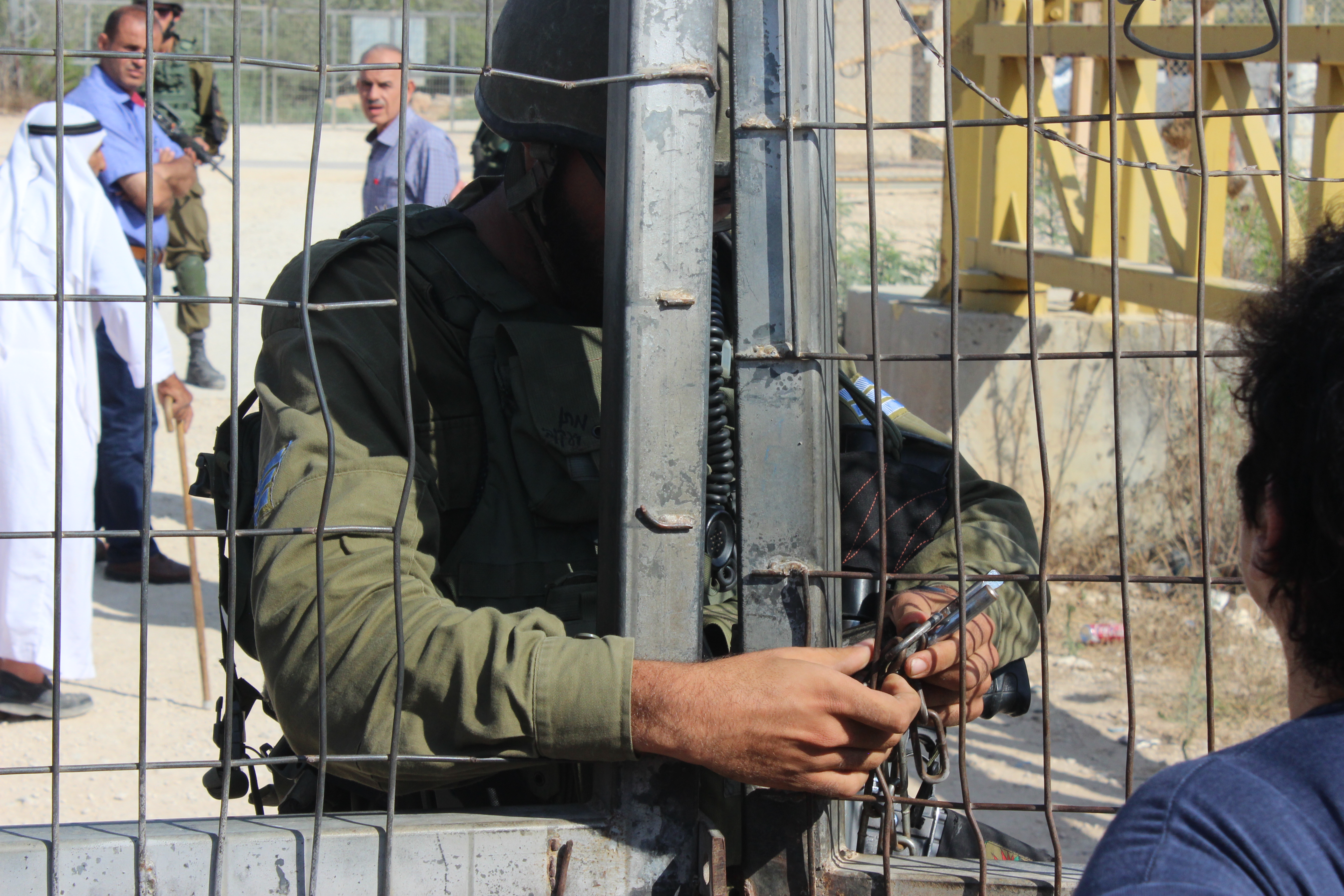-
Israeli forces attack peaceful demonstration in Bethlehem [VIDEO]
23rd July 2017 | International Solidarity Movement, al-Khalil team | Bethlehem, occupied Palestine Israeli forces attacked a peaceful demonstration in Bethlehem this Wednesday, using tear gas and rubber-coated steel bullets on the crowd of around 200 Palestinians. The demonstrators were protesting the new access restrictions introduced by Israel at Jerusalem’s Al-Aqsa mosque. Palestinian leaders had […]
-
Farmers protest damaging movement restrictions
19th July 2017 | International Solidarity Movement, al-Khalil team | Deir al-Ghusun, occupied Palestine Around 150 farmers in Deir al-Ghusun held a protest last Sunday against Israel’s travel restrictions, which were preventing them from accessing their fields. The apartheid wall runs near the town, meaning that farmers require travel permits from the Israeli army in […]
-
Explosions and arrest in Old City of occupied al-Khalil
18th July 2017 | International Solidarity Movement, al-Khalil team | Hebron, occupied Palestine Israeli soldiers have arrested 19 year old Ahmed Fayez in Hebron’s Old City. The teenager was working with friends when soldiers approached the group, demanding to see their IDs. When Fayez showed his, he was arrested and taken towards Beit Romano military […]
Action Alert An Nabi Saleh Apartheid Wall Arrests BDS Bethlehem Bil'in Cast Lead Demonstration Denial of Entry Ethnic Cleansing Farmers Gaza Global Actions Hebron House Demolition International law Israeli Army Jerusalem Live Ammunition Nablus Ni'lin Prisoner Ramallah Rubber-coated steel bullets Settlement Settlers Settler violence Tear-Gas Canister Video

![Israeli forces attack peaceful demonstration in Bethlehem [VIDEO]](https://palsolidarity.org/wp-content/uploads/2017/07/IMG_0957.jpg)

